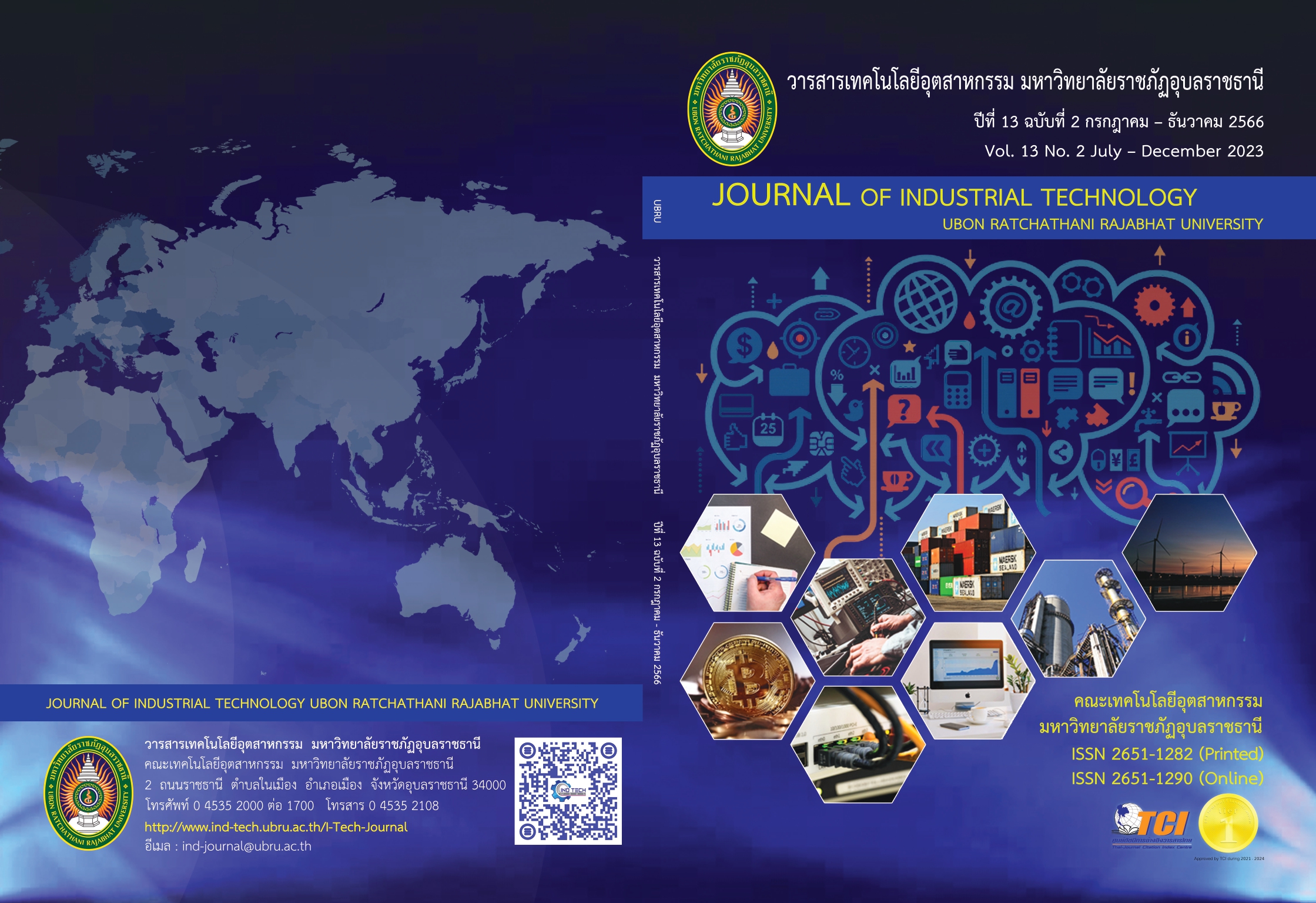การศึกษาประสิทธิภาพและความคุ้มค่าในเชิงเศรษฐศาสตร์ของระบบทำน้ำร้อน แบบผสมผสานระหว่างปั๊มความร้อนจากแหล่งอากาศ และระบบทำน้ำร้อนพลังงานแสงอาทิตย์
Main Article Content
บทคัดย่อ
งานวิจัยนี้มีวัตถุประสงค์เพื่อศึกษาประสิทธิภาพของระบบทำน้ำร้อนผสมผสานระหว่างปั๊มความร้อนจากแหล่งอากาศและระบบทำน้ำร้อนพลังงานแสงอาทิตย์ พร้อมทั้งเปรียบเทียบความคุ้มค่าเชิงเศรษฐศาสตร์ โดยในการทดลองประสิทธิภาพจะเป็นการทดสอบระบบทำน้ำร้อนในจังหวัดเพชรบุรี จากผลการทดลอง พบว่าในการทำงานของระบบทำน้ำร้อนผสมผสานจะทำงานในช่วง 08.00 น. ถึง 16.00 น. เนื่องจากที่เวลาดังกล่าวจะมีความเข้มแสงอาทิตย์ที่ทำให้ระบบทำน้ำร้อนพลังงานแสงอาทิตย์และปั๊มความร้อนจากแหล่งอากาศผลิตน้ำร้อนที่อุณหภูมิ 60 องศาเซลเซียสได้อย่างมีประสิทธิภาพ ดังนั้นค่าสัมประสิทธิ์ประสิทธิภาพรวมของระบบทำน้ำร้อนแบบผสมผสานมีค่าในช่วง 3.2 ถึง 3.5 โดยค่าที่ได้จะเกิดจากค่าสัมประสิทธิ์ประสิทธิภาพของปั๊มความร้อนจากแหล่งอากาศในช่วง 3.0 ถึง 3.1 และค่าสัมประสิทธิ์ประสิทธิภาพของระบบทำน้ำร้อนพลังงานแสงอาทิตย์ในช่วง 0.1 ถึง 0.4 เมื่อพิจารณาความคุ้มค่าเชิงเศรษฐศาสตร์โดยเปรียบเทียบระบบทำน้ำร้อนผสมผสานกับระบบทำน้ำร้อนขดลวดไฟฟ้าจะเห็นว่าค่าใช้จ่ายการลงทุนของระบบทำน้ำร้อนผสมผสานจะมีค่ามากกว่าระบบทำน้ำร้อนขดลวดไฟฟ้าแต่ค่าไฟฟ้าที่ใช้ในการผลิตน้ำร้อนของระบบทำน้ำร้อนผสมผสานน้อยกว่าระบบทำน้ำร้อนขดลวดไฟฟ้าอย่างมาก พิจารณาอัตราผลตอบแทนภายในและระยะเวลาคืนทุนพบว่าระบบทำน้ำร้อนผสมผสานสามารถทดแทนระบบทำน้ำร้อนขดลวดไฟฟ้าได้คุ้มค่าเนื่องจากมีอัตราผลตอบแทนภายในร้อยละ 19 ที่มากกว่าอัตราดอกเบี้ยเงินกู้ขั้นต่ำที่ร้อยละ 12 และระยะเวลาคืนทุน 4.8 ปี ซึ่งน้อยกว่าช่วงอายุการใช้งานระบบทำน้ำร้อนผสมผสานที่ 15 ปี
Article Details

อนุญาตภายใต้เงื่อนไข Creative Commons Attribution-NonCommercial-NoDerivatives 4.0 International License.
บทความที่ได้รับการตีพิมพ์ในวารสารฯ ท้ังในรูปแบบของรูปเล่มและอิเล็กทรอนิกส์เป็นลิขสิทธิ์ของวารสารฯ
เอกสารอ้างอิง
Inthapote N. A technical and economic feasibility study of replacing boiler with heat pump water heater in a small hotel [thesis]. Bangkok; King Mongkut's University of Technology Thonburi; 2013. (in Thai)
Booriboon K. A study of effect of Thailand ambient weather on heat pump coefficient of performance [thesis]. Bangkok; King Mongkut's University of Technology Thonburi; 2015.
(in Thai)
Hunchat P. A study of parameters affecting the performance of water heater by 16 kW heat pump [thesis]. Pathum Thani; Rajamangala University of Technology Thanyaburi; 2018. (in Thai)
Keeratikanphong S. Analysis of a solar assisted heat pump for hot water heating system [thesis]. Bangkok; King Mongkut's University of Technology Thonburi; 1999. (in Thai)
Li H, Yang H. Study on performance of solar assisted air source heat pump systems for hot water production in Hong Kong. Applied Energy. 2010; 87(9): 2818-25.
Bakirci K, Yuksel B. Experimental thermal performance of a solar source heat-pump system for residential heating in cold climate region. Applied thermal engineering. 2011; 31(8-9): 1508-18.
Kaygusuz K, Ayhan T. Experimental and theoretical investigation of combined solar heat pump system for residential heating. Energy Conversion and Management. 1999; 40(13): 1377-96.
Sikhonza M, Tangwe S, Manyi-Loh C. An evaluation of the energetic performance of a residential hybrid solar assisted air source heat pump water heater. AIUE Proceedings of the 2nd Energy and Human Habitat Conference 2021; 2021 June 7-8; Cape Town, South Africa: Energy and Human Habitat; 2021.
Tangwe S, Sikhonza M. Design and monitoring of a hybrid energy system: performance analysis and modelling. Cogent Engineering. 2021; 8(1): 1975901.
Ministry of Energy. Building energy efficiency standard of Thailand 2021 [Internet]. 2021 [cited 2022 January 20]. available from: https://download.asa.or.th/03media/04law/eca/ma64.pdf (in Thai)
Krung Thai Bank Public Company Limited. Loan Interest Rates 2021 [Internet]. 2021 [cited 2022 January 20]. available from: https://krungthai.com/th/rates/viewdetail/4
Buker M, Riffat S. Solar assisted heat pump systems foe low temperature water heating applications: A systematic review. Renewable and sustainable energy reviews. 2016; 55(C): 339-413.


